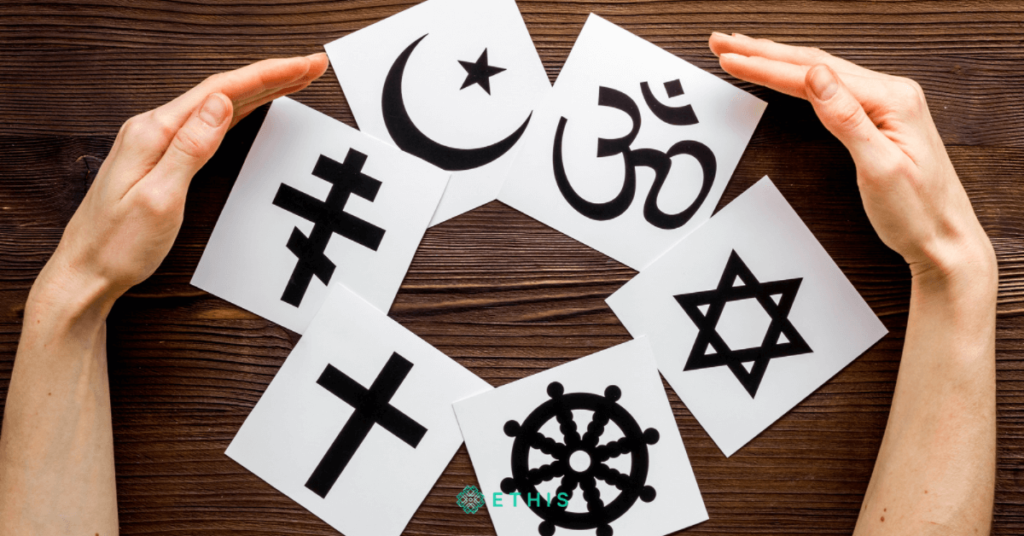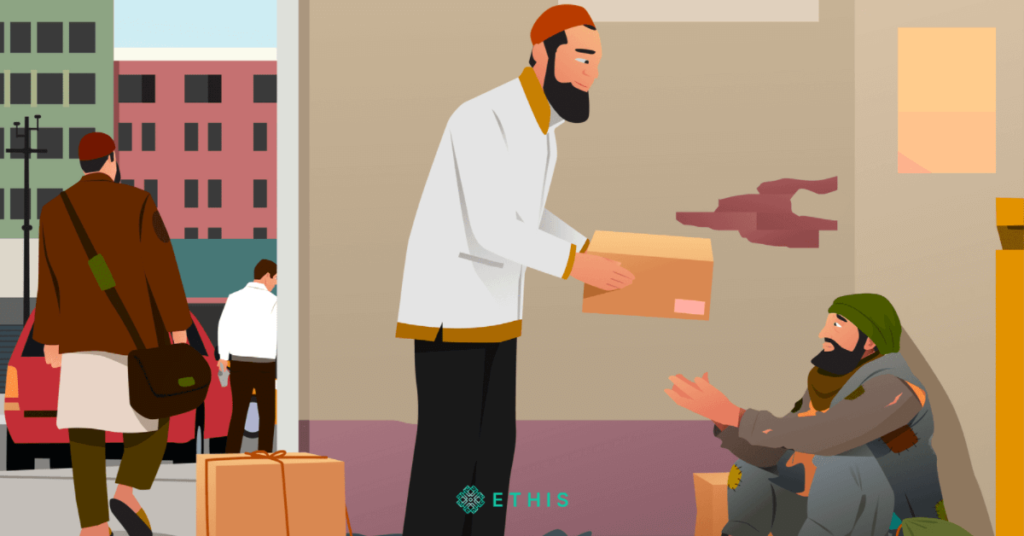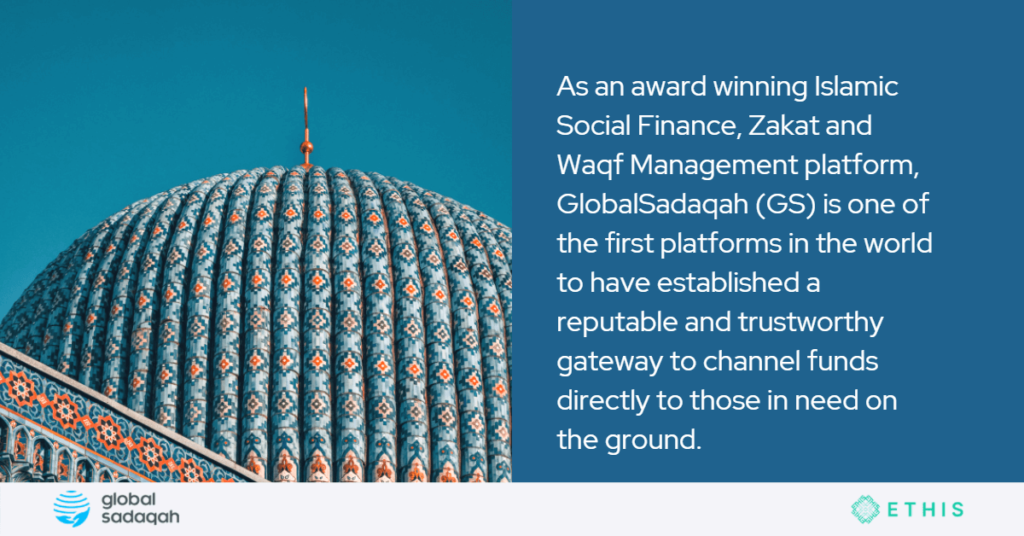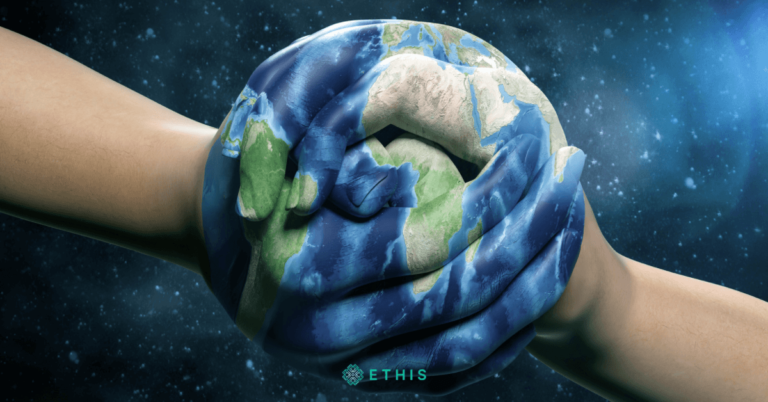
By Dr. Lafeer Muhfeeth
Can Zakat distribution be used as a mechanism to enhance social cohesion in multi-cultural, multi-ethnic, and multi-religious societies? In this article, we will show that Zakat can be disbursed among all needy citizens, regardless of their religion and race, as a means to win their hearts and enhance social cohesion.
Why is social cohesion important?
Terms such as “social cohesion”, “social integration” and “social inclusion” have reached the top of the political agenda in many countries and is a major preoccupation of policymakers. It refers to the strength of relationships and the sense of solidarity among members of a community, the process of building shared values and reducing disparities in wealth and income, and generally enabling people to have a sense that they are engaged in a common enterprise, facing shared challenges, and that they are members of the same community.
Social cohesion is also defined as the capacity of a society to ensure the welfare of all its members, minimising disparities and avoiding polarisation. In other words, we can define social cohesion as the “tools” or the “bonds” that keep societies integrated.
The promotion of social cohesion has become extremely important in the contemporary world, as the global mobility of culturally diverse populations has posed challenges to the shared values, ethics and identities of societies, especially in multi-cultural, multi-ethnic, and multi-religious societies like Malaysia and Sri Lanka.
What Islam teaches us about social cohesion


Societies are made up of different individuals who vary in race, ethnicity, language, and religion. As God Almighty says in the Holy Qur’an: “O mankind. We have created you from a male and a female, and made you into nations and tribes, that you may know one another” (49/13). He further says “And we have not sent you (O Muhammad), except as a mercy to the worlds.” (21:107)
The Prophet Mohammad (Peace Be Upon Him) was sent to all living beings. His mission was not in any way to be restricted to Muslims only. It encompassed all, Muslims and non- Muslims, humans and the jinn, and even animals and non-living things. And it is this same Messenger of Allah who said: “Beware, if anyone wrongs a non- Muslim, or diminishes his right, or forces him to work beyond his capacity, or takes from him anything without his consent, I shall be his adversary on the Day of judgment.” (Abu Dawud)
The Prophet treated all people well, including non- Muslims. Allah enjoined fairness, kindness, good treatment and rendering back trust for Muslims and non-Muslims alike.
We have two important verses in the Qur’an that teach us how to deal with non-Muslims.
- “Allah does not forbid you from dealing kindly and fairly with those who have neither fought nor driven you out of your homes. Surely Allah loves those who are fair.” (60:8)
2. Allah forbids you from being kind and befriending with the disbelievers who are openly hostile to you, those who fought against you, expelled you and helped to expel you. Allah the Exalted forbids you from being their friends and orders you to be their enemy.” (60:9)
The verses say: Those who did not have a role in fighting you, or expelling you, you should be gentle and fair with them.
From this verse, we understand that Muslims should be kind to all peaceful people, Muslims and non-Muslims alike.
Islam perceives society as an association formed per the divine law with the purpose of harmonious and peaceful coexistence. It constitutes the very foundation of social order in Islamic society.
The conception of society in Islam is much more comprehensive than in non-Muslim societies, for it synthesises the material and spiritual aspects of human life and views society as an organic whole, where all aspects of life are considered as parts of a body, and where the affliction of any individual part will equally affect the whole. This means the plight of humans anywhere in the world should affect us and result in our taking action to alleviate their plight. A society based on such a loving and caring spirit is not prone to any permanent state of conflict and therefore can be likened to an organism that takes care of every organ of its body.
Therefore, there is no room for sectarianism or racism in the Islamic conception of society. It is a universal social system based on the principle of the oneness of God, which is the cornerstone of the Islamic worldview and reflected in the desired object of the unity of man. In recognition of this fact, Islam provides for doing good to others, whoever they are. As stated in the Quran about the Ansar (inhabitants of Medina) who welcomed the Muhajireen who emigrated from Makkah: they give preference to others over themselves even though they are in poverty, and it is they who are truly successful (59:9).


Indeed, the chaotic state of Medina before the prophet’s migration from Makkah is a clear example of the significance of social cohesion in Islam. It is recorded in history that the tribes of Madinah were in a perpetual state of conflict with one another before the arrival of the prophet and his companions.
The arrival of the prophet ended the feud and established peace and brethren between the two tribes of Auz and Khazraj and at the same time, between the Muhajirun and Ansar. But even the Jews from the tribe of Bani Auf were deemed a part of the community with the believers, it is understood that “For the Jews their religion and for the Muslims their religion”. Thus social cohesion in Madinah between different, and multi-religious groups was achieved.
What are the values entrusted to us regardless of religion?
As shown above, social cohesion is an important component of a peaceful, harmonious, and progressive community. To emphasise the importance of social cohesion, we must rediscover common ideals shared by all humans and entrusted to us regardless of religious beliefs.
In his book International Relations, Abu Zahrah outlines ten guiding principles/pillars derived from Quranic verses and prophetic literature. Among others:
i. Human dignity
Allah says in the Quran:
وَلَقَدۡ كَرَّمۡنَا بَنِىٓ ءَادَمَ
Verily we have honoured the children of Adam (Al-Isra: 70)
ii. Human cooperation
The Prophet says:
وَاَللَّهُ فِي عَوْنِ اَلْعَبْدِ مَا كَانَ اَلْعَبْدُ فِي عَوْنِ أَخِيهِ
“Allah helps His slave as long as he helps his brother”. (Sahih Muslim)
iii. Recognising all humans as a community
Allah reiterates this principle at the beginning of Surah An-Nisa:
يَـٰٓأَيُّـــــهَا ٱلنَّاسُ ٱتَّقُواْ رَبَّكُمُ ٱلَّذِى خَلَقَكُم مِّن نَّفۡسٍ۬ وَٲحِدَةٍ۬ وَخَلَقَ مِنْــــهَا زَوۡجَهَا وَبَثَّ مِنْـــهُمَا رِجَالاً۬ كَثِيرً۬ا وَنِسَآءً۬ۚ وَٱتَّقُواْ ٱللَّهَ ٱلَّذِى تَسَآءَلُونَ بِهِۦ وَٱلۡأَرۡحَامَۚ إِنَّ ٱللَّهَ كَانَ عَلَيۡكُمۡ رَقِيبً۬ا



O humanity! Be mindful of your Lord Who created you from a single soul, and from it He created its mate, and through both He spread countless men and women. And be mindful of Allah—in Whose Name you appeal to one another—and honour family ties. Surely Allah is ever Watchful over you. (Surah An-Nisa’, 4:1)
iv. Freedom of religion
لَآ إِكۡرَاهَ فِى ٱلدِّينِ
“There is no compulsion in religion” (Surah Al-Baqarah, 2:256)
v. Tolerance
Allah mentioned the virtue of being tolerant in Surah Al-Hujurat by depicting the intent of creating humans differently from one another:
يَـٰٓأَيّها ٱلنَّاسُ إِنَّا خَلَقۡنَـٰكُم مِّن ذَكَرٍ۬ وَأُنثَىٰ وَجَعَلۡنَـٰكُمۡ شُعُوبً۬ا وَقَبَآٮِٕلَ لِتَعَارَفُوٓاْ
O mankind, indeed, we have created you from male and female and made you peoples and tribes that you may know one another. (Al-Hujurat, 49:13)
Knowing that the Quran and Hadith divinely support all of these ideals, it is only natural that Muslims follow these principles in their interactions with people of different religions. Since these ideals are universal, non-Muslims and Muslims alike should focus on the similarities rather than the differences. Seeing solely the differences without seeking understanding could hinder societal cohesion.
Zakat as a means of social cohesion
It is clear that in all societies, differences of wealth between richer and poorer people when these disparities are excessive or tend to increase, social cohesion is put at risk. Again, no society is without ethnic and cultural diversity; the question is how Zakat can play a role in managing diversity so that it becomes a source of mutual enrichment rather than a factor of division and conflict.
This is very important as the absence of social cohesion in multi-cultural, multi-ethnic, and multi-religious societies could lead to hate, intolerance, fanaticism and eventually, violence. Islam, after all, is not only what one formally or ritualistically practices, but how one deals with others. The essence of worship in Islam is serving God Almighty as well as serving mankind, which is also regarded as service to god.
Zakat is one of the foundations of the Islamic economy. It is based on social welfare and the fair distribution of wealth to needy citizens. It is the third pillar of Islam and one of the main financial resources available to maintain the social fabric of society. It has been defined as a certain amount from a specific wealth for the benefit of those who are entitled to receive it as stipulated in the Holy Quran. In Muslim-majority countries, it has had a long tradition of being part of the provision of social welfare and placed within the broader social protection system in the country.
The Quran lists eight categories of people who can claim the right to receive Zakat, and one very important category of such recipients is “Those whose hearts are won over” or “Those whose hearts need softening”. They are called “Al- Muallafat al- Qulubuhum.”
The term “Muallafatul Quloob” is not just those who have newly embraced Islam as interpreted by certain scholars, but also includes persons who have not embraced Islam as yet but given with the intention that they would embrace Islam. Thus Zakat can be given to all needy citizens of an Islamic state to win and soften their hearts, even if they are non-Muslims to enhance the social cohesion of the nation as a reconciliation of hearts.
Zakat is for all deserving people
It is very clear from the very early days of Islam that Zakat was given to the “Muallafathul Quloob” to attract them or their relatives or tribes to embrace Islam. Such inducements were thought necessary because their hearts were inclined or already committed to Islam. It was hoped that they would be attracted to the Islamic community and the Islamic way of life by meeting their basic needs.
We know that Prophet Mohammad (Peace Be Upon Him) disbursed Zakat funds to non-Muslims, and this practice was continued by the rightly-guided Caliphs after the Prophet. For instance, it is known that Caliph Umar gave destitute Jew money from the treasury of the Muslims.


Despite differing opinions regarding this issue, many renowned scholars of Islam hold that Zakat funds may be distributed to non-Muslims, to bring them closer to Islam. This is because it is clearly stated as such in the Holy Quran and Sunnah.
The purpose and scope of distributing Zakat funds to non-Muslims can be very broad. It may be done to promote prophetic mercy, love for Islamic ethics or way of life, soften their hearts towards the Muslim community and eventually convince them to be part of the community. All this is ultimately meant to enhance social cohesion in a multicultural society.
GlobalSadaqah, situated in Kuala Lumpur, Malaysia, is a great example of social cohesiveness in action, through its Zakat programmes. It’s one of the world’s first Islamic charity crowdfunding platforms. It is an award-winning CSR, Zakat, and waqf management platform that works with religious authorities, foundations, banks, and enterprises, as well as the general public, to increase the efficiency, sustainability, and impact of Social Finance.
Global Sadaqah’s campaigns aim to improve social cohesion. Some of their current projects are:
- Paying Zakat to the Poorest Families in Northern Nigeria
- Covid-19 Emergency: Help India Breathe
- Emergency Help and Medical Aid for Palestinians Attacked by The Israeli Occupation
- Fighting Hunger: Free Bread For 2000 Poor Families in Yemen
- Emergency Relief: Massive Floods Wreak Havoc In Yemen


Some of the benefits of GlobalSadaqah’s platform include:
- Zakat/Waqf eligible campaigns verified and approved by in-house Shariah team
- 100% of campaigns from trusted and verified partners after enhanced due diligence and KYC
- Fund matching by corporate partners for eligible campaigns
- Zero compromise safety and security standards for secure donations





Top Posts
Islamic P2P Crowdfunding Explained
How to Earn Halal Money? The Money Mindset
Halal Investments for Singapore Muslims? It’s time for a shake-up in the Islamic Investments scene.
Smart investment for making Halal money
3 Reasons Why Property Crowdfunding is the Smart Investment for You